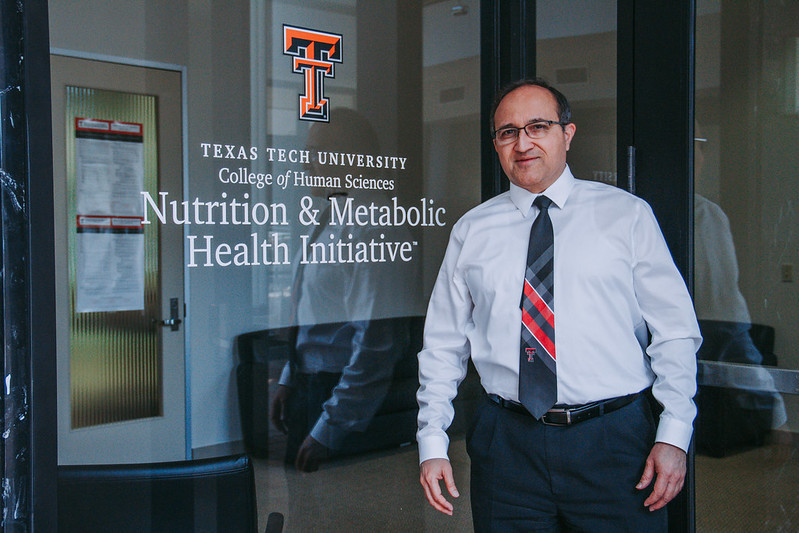
Nikhil Dhurandhar and his research team were recognized by Texas Tech University for their efforts in the development of an anti-diabetes drug
Nutritional Sciences faculty member, Nikhil Dhurandhar, Ph.D., received the TTU President’s Excellence in Research Commercialization Award for his team’s efforts in substantially advancing the development of an anti-diabetes drug from a viral protein. The President’s Excellence in Commercialization Award recognizes outstanding contributions to the commercialization of innovative work done by TTU faculty.
The commercialization aspect of research is essential. This means there is an end goal in mind for the particular research. In this case, Dhurandhar and his team conducts research that is expected to lead to the development of drug(s) for treating chronic diseases like diabetes or fatty liver disease. They recently received a large grant resulting from investment of an outside investor in their drug development efforts.
“The end goal is not to just do research, for the sake of research,” Dhurandhar said. “It has to turn into something of benefit to humans. In the Department of Nutritional Sciences, many faculty members are conducting research to find a drug or mechanisms that will benefit some disease like diabetes, Alzheimer's or cancer.”
Dhurandhar’s team also includes Vijay Hegde, Ph.D., who serves as the co-principal investigator on the investment grant. Two postdoctoral fellows, Zahra Feizy, Ph.D., and Abu Siddik, Ph.D., also work with Dhurandhar on the team to share their expertise.
Dhurandhar and colleagues discovered over 25 years ago that a virus, Adenovirus 36 (Ad36), causes obesity. Dhurandhar and his team studied Ad36 in animals and noticed that the infected animals developed obesity. However, despite obesity, the animal’s glucose levels improved, even though it should’ve had the opposite effect. That got Dhurandhar and his team thinking that there was some advantage in the virus or it’s gene that improved glucose levels.
“If we can harness only that gene from that virus, we don't have to deal with the whole infection from a virus,” Dhurandhar said. “That thought process led us to identifying a protein called E4, ORF1, but we call it ‘Insparin’, for its insulin sparing action.”
Dhurandhar and his team are working on developing Insparin into a drug that will treat type one diabetes, type two diabetes and fatty liver disease. The goal of his research is to ultimately help humans. He likes to call the research path followed ‘bench to bedside’, meaning the research coming from the bench in the lab, to bedside where it helps cure or treat someone.
“The College of Human Sciences seeks to directly impact lives by improving and enhancing the human condition and the work by Dr. Dhurandhar exemplifies that mission,” said Tim Dodd, Ph.D., dean of the College of Human Sciences. “Dr. Dhurandhar’s work is world-renowned, and he brings a unique perspective to problems associated with nutrition—particularly with obesity and diabetes. His work will continue to have direct commercial application and to benefit the lives of those who suffer with this disease.”
Dhurandhar says it was an honor to be selected and supported by the university. Him and his team have made remarkable strides in their discoveries and research. The President’s Excellence in Commercialization Award recognizes their achievements and allows support for the continuation of impactful research that will benefit the community.
